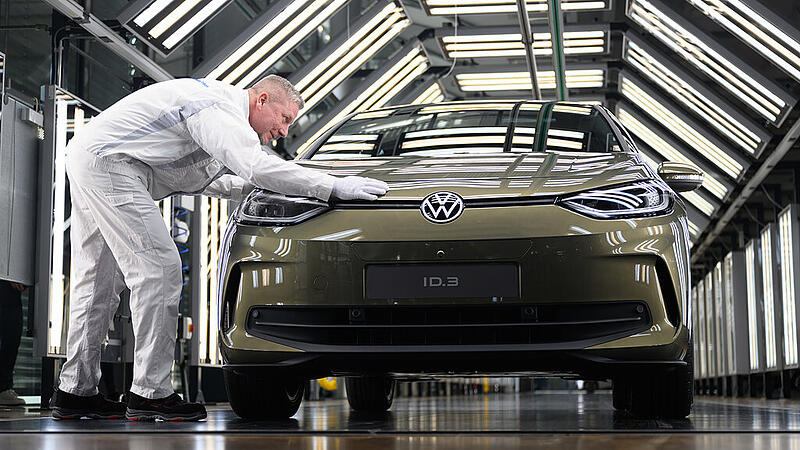Image: (APA/dpa/Robert Michael)
After the decline in deliveries in the past year, the group expects an increase of almost 15 percent to around 9.5 million vehicles in 2023. The reason is the order backlog of 1.8 million vehicles, which has accumulated due to a lack of semiconductors and persistent delivery bottlenecks. Nevertheless, there was an increase in profit and sales in the previous year.
This year, sales should increase in a range between 10 and 15 percent, the operating return between 7.5 and 8.5 percent, Volkswagen announced on Friday. This means that the lower end of the range is half a percentage point higher than was forecast for the previous year. Investors were infected by the optimism: With a price increase of more than 8 percent, the VW shares took the lead among the winners in the DAX share index.
With the forecast, Europe’s largest car manufacturer is aiming for group sales of between 307 and 331 billion euros. Last year, sales rose by almost twelve percent to around 280 billion euros. Germany’s largest company increased its operating result by 15 percent to a good 22 billion euros. The bottom line is that profits increased by around three percent to 15.8 billion euros.
From this, the shareholders are to receive a dividend increased by EUR 1.20 each. Instead of EUR 7.50 per ordinary and EUR 7.56 per preferred share as in the previous year, EUR 8.70 and EUR 8.76 respectively are to flow to the shareholders, including the largest holding company Porsche SE of the Porsche and Piech families, the state of Lower Saxony and the emirate Qatar.
“Today’s results are further proof of the solid financial basis on which we are consistently implementing our strategy,” explained CFO Arno Antlitz.
In the second largest car company after Toyota, deliveries fell by 7 percent compared to the previous year due to chip bottlenecks. The network of companies with brands such as VW cars, Audi, Porsche, Skoda and Seat increased its sales and profits – in this case from 250.2 billion to 279.2 billion euros. One reason for this is that the largest German company was able to charge higher prices on average. In addition to the shortage of cars, general inflation also had an impact.
Volkswagen published the first key data from its balance sheet in early February. Accordingly, the inflow of cash last year almost halved from 8.6 to 5 billion euros because many cars had to be produced in stock due to a lack of semiconductors. The funds tied up were significantly higher than expected. For this year, the people of Lower Saxony are assuming that the trend will be reversed, as stocks are decreasing and production is running smoothly again. Because of the uncertain economy, however, customers are now staying away, which poses new problems for the group.
more from economy




